
Juventus Football Club, colloquially known as Juve, is a professional football club based in Turin, Piedmont, Italy, that competes in the Serie A, the top tier of the Italian football league system. Founded in 1897 by a group of Torinese students, the club has worn a black and white striped home kit since 1903 and has played home matches in different grounds around its city, the latest being the 41,507-capacity Juventus Stadium. Nicknamed la Vecchia Signora, the club has won 36 official league titles, 14 Coppa Italia titles and nine Supercoppa Italiana titles, being the record holder for all these competitions; two Intercontinental Cups, two European Cups / UEFA Champions Leagues, one European Cup Winners' Cup, a joint national record of three UEFA Cups, two UEFA Super Cups and a joint national record of one UEFA Intertoto Cup. Consequently, the side leads the historical Federazione Italiana Giuoco Calcio (FIGC) classification, whilst on the international stage the club occupies the sixth position in Europe and the twelfth in the world for most confederation titles won with eleven trophies, as well as the fourth in the all-time Union of European Football Associations (UEFA) competitions ranking, having obtained the highest coefficient score during seven seasons since its introduction in 1979, the most for an Italian team in both cases and joint second overall in the last cited.

Giovanni "Gianni" Agnelli, nicknamed L'Avvocato, was an Italian industrialist and principal shareholder of Fiat. As the head of Fiat, he controlled 4.4% of Italy's GDP, 3.1% of its industrial workforce, and 16.5% of its industrial investment in research. He was the richest man in modern Italian history.
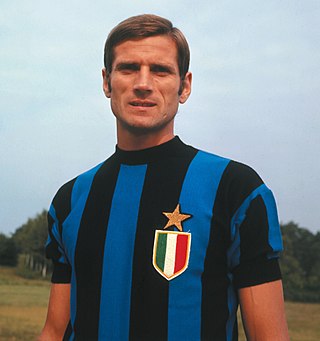
Giacinto Facchetti was an Italian footballer who played as a left-back for Inter Milan from 1960 to 1978. He later served as Inter chairman from January 2004 until his death in 2006. He played 634 official games for the club, scoring 75 goals, and was a member of "Grande Inter" team under manager Helenio Herrera which won four Serie A titles, a Coppa Italia, two European Cups, and two Intercontinental Cups. He placed second for the Ballon d'Or in 1965.
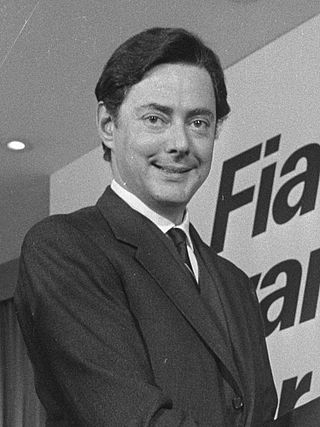
Umberto Agnelli was an Italian industrialist and politician. He was the third son of Virginia Agnelli and of Edoardo Agnelli, and the youngest brother of Gianni Agnelli.
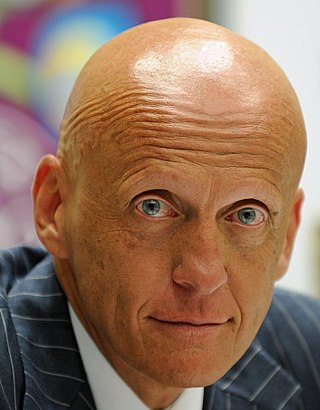
Pierluigi Collina is an Italian former football referee. He was named "The World's Best Referee" by the International Federation of Football History & Statistics six consecutive times from 1998-2003.

Lapo Edovard Elkann is an Italian businessman, philanthropist, and socialite. He is the chairman, founder, and majority shareholder (53.37%) of the Italia Independent Group. He is also the president and founder of Garage Italia Customs and Independent Ideas, as well as a member of the board of directors of Ferrari N.V. and responsible for the promotion of the Fiat Group brand. He is the great-grandson of Fiat S.p.A. founder Giovanni Agnelli, the grandson of Gianni Agnelli, who is the former controlling CEO and controlling shareholder of Fiat Automobiles, and the brother of John Elkann.

The Derby d'Italia is the name of the football derby between Internazionale of Milan and Juventus of Turin. The term was coined back in 1967 by Italian sports journalist Gianni Brera. It is the equivalent of Spain's El Clásico and France's Le Classique.
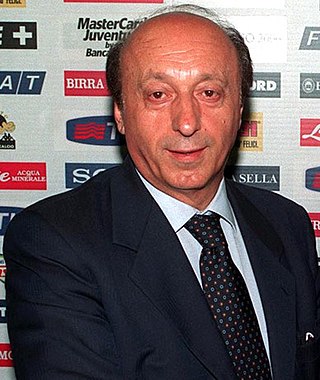
Luciano Moggi is a former Italian association football administrator and convicted fraudster. He was a club executive for Roma, Lazio, Torino, Napoli, and Juventus, leading them to win six leagues, three Coppa Italia, five Supercoppa Italiana, one UEFA Champions League, one Intercontinental Cup, one UEFA Super Cup, and one Intertoto Cup, as well as winning one UEFA Cup with Napoli. He has since become a freelance journalist and commentator.
Calciopoli was a sports scandal in Italy's top professional association football league Serie A and to a lesser extent Serie B. Involving various clubs and numerous executives, both from the same clubs and from the main Italian football bodies, as well as some referees and referee assistants, the scandal was uncovered in May 2006, when a number of telephone tappings showed relations between clubs' executives and referee organizations during the football seasons of 2004–05 and 2005–06, being accused of selecting favourable referees. This implicated league champions Juventus and several other clubs, including Fiorentina, Lazio, Milan, and Reggina. In July 2006, Juventus was stripped of the 2004–05 Serie A title, which was left unassigned, and was downgraded to last place in the 2005–06 Serie A, as the title was subsequently awarded to Inter Milan, and relegated to Serie B. In July 2006, the Italy national football team won the 2006 FIFA World Cup, beating the France national football team 5–3 in a penalty shoot-out following a 1–1 draw at the conclusion of extra time; eight Juventus players were on the football pitch in the 2006 FIFA World Cup final, five for Italy and three for France. Many prison sentences were handed out to sporting directors and referees but all were acquitted in 2015, after almost a decade of investigation, due to the expiration of the statute of limitations, except for a one-year sentence confirmed to referee Massimo De Santis.

Franzo Grande Stevens is an Italian lawyer. Grande Stevens is famous for being the lawyer of the Agnelli family, and he was one of the triad of longtime advisors of Gianni Agnelli. He continues to advise his grandson and heir John Elkann. He served as chairman of Juventus F.C. from 2003 to 2006.
Massimo De Santis is an Italian former association football referee. De Santis was born in Tivoli, Lazio. In addition to being a former referee, he is also a former police constable. De Santis speaks Italian and English. His first international game was on 1 January 2000. He was an official at the 2004 Summer Olympics in Athens, Greece. De Santis was selected as Italy's refereeing representative at the 2006 FIFA World Cup but was barred by the Italian Football Federation due to the Calciopoli scandal in 2006. De Santis strongly denied guilt, saying: "If I committed any offences I did so on the field of play, if mistakes were made - but then we would have to try all the referees in the history of the game. I'm not taking this charge lying down. I expect justice." In July 2006, De Santis was banned for four years from football and given a 23-month prison sentence in November 2011.
The 1957–58 Serie A season was won by Juventus.
The history of Juventus F.C. covers over 120 years of association football from the club based in Turin, Italy, and established in 1897 that would eventually become the most successful team in the history of Italian football and amongst the elite football clubs of the world. Iuventūs is Latin for "youth". According to the International Federation of Football History & Statistics, an international organization recognized by FIFA, Juventus were Italy's best club of the 20th century and the second most successful European club in the same period.

Giovanni Cobolli Gigli is an Italian lawyer and former chairman of Juventus F.C. After obtaining a business degree from Bocconi University and starting out working in marketing for a multinational pharmaceutical company, he joined Turin company IFI S.p.A., which is now Exor, in 1973. He has been CEO of the Fabbri–Bompiani–Sonzogno–Etas Publishing Group since 1984, then holding the same position in Arnoldo Mondadori Editore since 1993, and in the Rinascente Group since 1994. In 2006, he became chairman of the Exor-owned Juventus association football club.
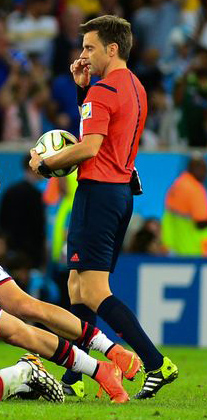
Nicola Rizzoli is an Italian former football referee who refereed in the Italian Serie A from 2002 to 2017 and was a FIFA-listed referee from 2007 to 2017. He refereed the 2014 FIFA World Cup Final between Germany and Argentina on 13 July at the Estádio do Maracanã and the 2013 Champions League Final between Borussia Dortmund and Bayern Munich at Wembley Stadium. Rizzoli won seven consecutive AIC Serie A Referee of the Year Awards from 2011 to 2017. On 18 February 2017, Soccer 360 included Rizzoli on its list of the top 5 referees in the 21st century.

Andrea Agnelli is an Italian businessman. Since May 2010, Agnelli served as chairman of Italian association football club Juventus F.C., which it returned to Italian football dominance throughout the 2010s with nine consecutive record-breaking Serie A titles, along with four consecutive national doubles and one domestic treble. Under Angelli's presidency, Juventus also returned to European competitiveness, reaching one UEFA Europa League semifinal and two UEFA Champions League finals. In November 2022, he resigned his positions, amid the Plusvalenze investigation.
Art.52, Norme organizzative interne della FIGC governs the status of phoenix clubs of football in Italy. The article was revised in 2004, 2008, 2010, and 2014. Many Commas, or paragraphs, are present throughout the document. Comma 1 describes the article's main points, while Comma 2 forbids to sell a club sport's rights.
Sports proceedings began soon after Calciopoli, an association football scandal, was made public in May 2006. In July 2006, the Italian Football Federation's (FIGC) Federal Court of Justice started the sports trial. Juventus was relegated to Serie B with points-deduction, while other clubs only received points deductions. Most of implicated club's presidents and executives, as well as referees, referee designators, referee assistants, and FIGC higher-ups were initially proposed to be banned for life but only Juventus CEO Antonio Giraudo and Juventus general director Luciano Moggi were confirmed to be banned for life. Two criminal trials took place in Naples, the first related to Calciopoli proper, while the second involved consultancy company GEA World, which was alleged to hold power over all transfers and Italian football players and agents; all defendants were acquitted of the stronger charges. The Naples trial resulted in Calciopoli bis, which implicated almost every Serie A club, including Inter Milan, to which it was awarded the 2006 scudetto. Moggi's legal defence attempted to present those new developments at the Naples court but they were refused because the court ruled that it was there to determinate whether Moggi's lifetime ban should be confirmed and the gravity of his actions, as was sentenced in the controversial 2006 sports trial.

Guido Rossi was an Italian jurist, lawyer, and politician.
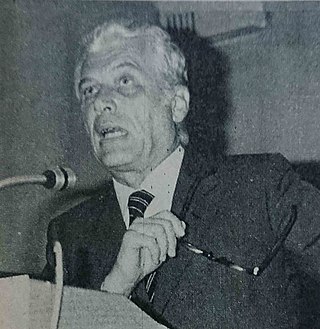
Gianluigi Gabetti was an Italian businessman. Best known for his long-time role as advisor of the Agnelli family and their related business activities, Gabetti was director general of IFIL Group, the family investment company since 1971 that later became Exor, the holding company of the Agnelli family. He worked there as their closest financial adviser for over thirty years. When Gianni Agnelli died in 2003, his younger brother Umberto Agnelli asked the octogenarian Gabetti to return as CEO of IFIL.
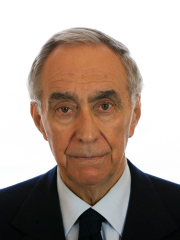
![Carraro on the left holding the European Cup with Milan's Gianni Rivera,Nereo Rocco,and Jacopo Castelfranchi [it] in 1969 Rivera Carraro Rocco Castelfranchi.jpg](http://upload.wikimedia.org/wikipedia/commons/thumb/f/f9/Rivera_Carraro_Rocco_Castelfranchi.jpg/220px-Rivera_Carraro_Rocco_Castelfranchi.jpg)













